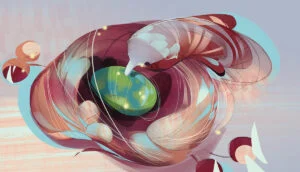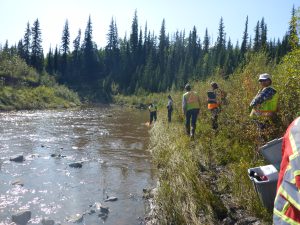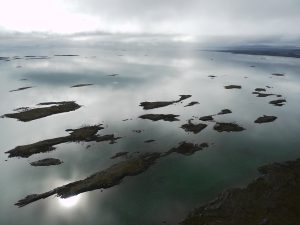
Environment
The sixth extinction
The planet is in the midst of drastic biodiversity loss that some experts think may be the next great species die-off. How did we get here and what can be done about it?
- 4895 words
- 20 minutes
This article is over 5 years old and may contain outdated information.
Environment

Jill Heinerth is a Canadian cave diver, underwater explorer, writer, photographer, film-maker and Fellow of The Royal Canadian Geographical Society. Heinerth advocates for water conservation through the We Are Water Project.
Ask a child where their water comes from and they will tell you “the tap.” I live above one of the most abundant aquifers on the planet, yet few my neighbours seem to understand how they might be unintentionally polluting that scarce resource. Somehow, we have lost touch with the stuff that has defined my career, my life: water.
Fresh water has become a finite resource. Many experts agree that, without significant changes in water policy, wars of the 21st century may be fought, not over oil, but for control of clean water.
In outer space, we look for life by searching for water, yet we have taken our own for granted. Earth is a planet brimming with water, yet less than 3 per cent of it is fresh and most of that is locked up in ice. Less than 1 per cent of the water on earth can be used as drinking water. There is nothing more precious than usable fresh water and nothing is shrinking faster as we overpopulate this big blue orb.
I decided it was important to help people understand how we’re impacting the water we drink, and what we can do to change.
My goal with the We Are Water Project is to help people learn about their local watershed and promote general water literacy. I want people to understand where their water comes from, how they might be polluting it and how they can conserve it for future generations.
On a local level, we can all take small actions to conserve and protect water resources. North Americans use five times more water than Europeans. Our wasteful actions include our love affair with a golf-course style lawn, consumer choices and inefficiencies within our homes. We wantonly buy bottled water without recognizing that it takes five bottles’ worth of water to make one and even more to deal with the trash.
On a regional level, we have somehow become oblivious about where our food and consumer goods originate. The glut of the last several decades has led to habits that use and pollute water on a grand scale.
Globally, we have forgotten that many people are not as fortunate as we are. Millions of women spend their entire day walking on dangerous roads to fetch water for their families. They become the victims of desperation and miss out on the opportunity for education and advancement. They tend to their children who are sick from water tainted with toxic chemicals and dangerous microbes.
Yet even with these dire observations, I have to remain optimistic about our ability to understand the issues and do something about it. We’re in the 11th hour, yet it only takes collective will and action to move towards a more harmonious and sustainable future.
With knowledge comes power and change and I believe when people are better connected with their water resources, they will want to do something about it. Most importantly, I want to inspire people to have a love affair with water. If you swim, dive or paddle in it, you’ll want to do it again. We will protect what we love. Both our bodies and our planet are mostly water, so please, join me at We Are Water.
Are you passionate about Canadian geography?
You can support Canadian Geographic in 3 ways:

Environment
The planet is in the midst of drastic biodiversity loss that some experts think may be the next great species die-off. How did we get here and what can be done about it?

Environment
David Boyd, a Canadian environmental lawyer and UN Special Rapporteur on Human Rights and the Environment, reveals how recognizing the human right to a healthy environment can spur positive action for the planet

Environment
Many of Canada’s 25 watersheds are under threat from pollution, habitat degradation, water overuse and invasive species

Environment
How much do you know about Canada’s water — where it comes from and how it’s used?